RESPONDING TO VINE PAIR’s Question: Can Cutting-Edge Technology and Character Coexist in Winemaking?
8/6/2021 6:02:59 AMRESPONDING TO VINE PAIR’s Question: Can Cutting-Edge Technology and Character Coexist in Winemaking?
By Christian Palmaz Responding to an Article Written by Tim McKirdy | Aug 6th, 2021
Dear Tim,
Thank you for so thoroughly covering our story. I really appreciate the effort to capture such a technical topic and make it an enjoyable read! I have a couple reactions to some concepts your article drew that might potentially serve as a followup topic for a future piece and an interesting discussion for our blog where your article will be featured.
In your section, ALL-SEEING SUPERCOMPUTERS, you discuss the use of FILCS as a tool for fermentation success. The parameters it draws are certainly meant to focus on fermentation health and alert the winemakers of potential concerning pit falls, however, what it enables is far from a sterile and homogenous wine. In practice it enables the winemakers to take far more creative risks since their situational awareness is much higher. Riding a fermentation closer to the edge allows for more intense extractions of profiles that are more difficult to achieve when you are forced to play it safe because of less information afforded by a traditional fermenter. The results, we feel, are deeper expressions that better take advantages of the opportunities afforded by the individual vineyard parcels they come from. I’ve yet to hear a winemaker refer to a stuck fermentation as romantic.
In THE PHILOSOPHY OF INNOVATION, I really enjoyed your connecting the concept of winemaking as a series of “marginal gains” with the Team Sky cycling team. At the risk of sounding “boring” I have to say it’s actually quite accurate. Winemaking has a very long “supply chain” and is certainly affected by the sum of your errors. Randy Dunn once told me that the best wine you will make in a given vintage is defined by the grapes coming in the door. From that day forward your winemaking will likely only make it worse. So basically try to f***-up as little as possible over the next couple years. I loved that concept! After a great vintage, the estate vineyards are giving you all the character, diversity, and balance a great wine will need. Your job as a winemaker is simply to allow the vineyard to express itself in the glass with a dash of your style while minimizing mistakes. To me this clearly meant that if you want to improve a wine’s quality, improve its source and/or make fewer mistakes during the process. The greats know that you are less likely to succeed doctoring a wine to quality. This is the foundation of our additive vs observative innovation philosophy.
The overall approach of our winemaking is to celebrate the vintage. Tasting back through 21 years of wines made from the estate, you’ll find the wines beautifully tell their vintaged story while retaining a familiar sense of place. You can taste the philosophy and personality of the winemaking team right alongside the weather patterns, farming decisions both good and bad. The vineyard and process itself are infinite in their ability to impart personality. The tools we have developed do have the effect of minimizing error, but I argue, certainly not at the expense of complexity, expression, or style.
I’d love to invite you to taste a vertical of our wines for yourself. I promise they are great storytellers too! ; )
Thank you for telling ours.
Cheers!
Christian


